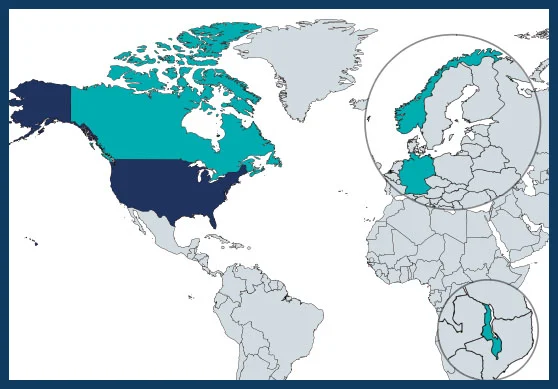11-2018 to 03-2022
€ 996,350
Rachel Bezner Kerr
rbeznerkerr@cornell.edu
Cornell University, Ithaca, UNITED STATES
University of Denver, UNITED STATES
Western University, London, CANADA
University of Würzburg, GERMANY
Lilongwe University of Agricultural and Natural Resources (LUANAR), Lilongwe, MALAWI
Soils, Food and Healthy Communities (SFHC), Ekwendeni, MALAWI
Norwegian Institute of Bioeconomy Research (NIBIO), Aas, NORWAY

Malawi mirrors many socioeconomic and ecological systems across Africa in that complex factors drive high food insecurity, deforestation, soil degradation, and urbanisation. Agricultural interventions relying on store-bought fertilisers and synthetic pesticides have not delivered anticipated benefits, and demand for fuelwood and agricultural land is driving significant changes in land use. These challenges threaten human well-being, biodiversity, and ecosystem services such as pollination and pest control. A growing body of research suggests that agro-ecological practices, such as the use of pesticidal plants as botanical sprays and crop diversification, may buffer a farm against biodiversity loss resulting from land use change. Yet little of this research explores biodiversity scenarios for African agro-ecosystems that account for the link between biodiversity and ecosystem services (including crop productivity) and for how local-level practices scale to landscape-level benefits.
FARMS4Biodiversity engages farmers in Malawi in collaboration with scientists (including from Malawi) from diverse fields, in order to examine five questions:
1. Can agro-ecological practices at different scales buffer against the loss of biodiversity and ecosystem services?
2.Are there breakpoints of adoption above which biodiversity and ecosystem services are best retained?
3.Do social roles and/or forces influence agro-ecological practice adoption and community resilience?
4.Can participatory scenario planning enhance resilience and biodiversity in light of climate and land use changes?
5.Do new institutional/policy frameworks facilitate the use of agro-ecological practices?
The project has four interrelated work packages involving the following tasks:
1.Researchers collect ecological, agricultural and land cover data. Analysis will lead to the creation of models of land use change over the next 25 years and their likely impacts.
2.Surveys assess how community-level social factors shape agro-ecological practices, perceptions and use of wild biodiversity and ecosystem services.
3.Farmers and researchers use satellite imagery, GPS, and other participatory methods to create maps of their communities, drawing on local knowledge to address environmental and social change.
4.Multi-actor platforms bring together diverse stakeholders to identify policies, tools, and technologies to support agricultural systems that promote biodiversity, food security, and resilience.
Each element of the project is designed to build knowledge and facilitate knowledge transfer between farming communities, policy makers and scientists. Farmers have critical roles in each part of the project, including but not limited to ecological data collection, participatory land use change scenario planning, and policy discussion. Results will be actively shared and disseminated through community meetings, publications and social media.